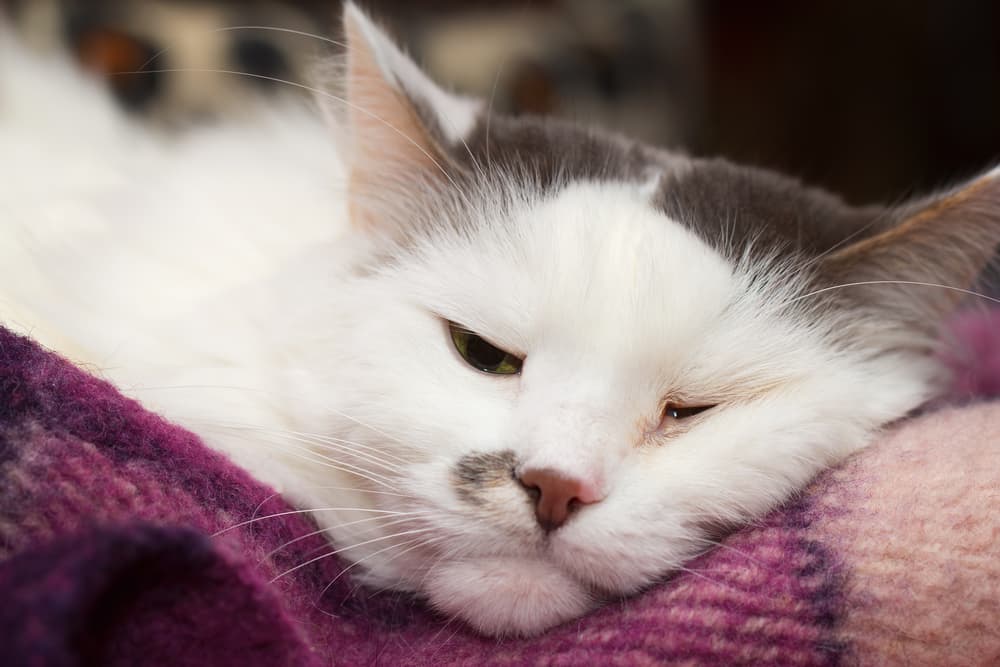Feline herpes, also known as Feline Viral Rhinotracheitis, is a common and recurrent viral infection affecting a significant number of cats. While the virus itself cannot be cured, managing its symptoms and reducing flare-ups is possible, especially through nutritional support. This article explores the best cat food options to support the health of cats living with feline herpes.
Understanding Feline Herpes
- Overview of Feline Herpes Virus: Feline herpes is a highly contagious respiratory virus. Symptoms can include sneezing, nasal congestion, conjunctivitis, and in some cases, ulcers in the mouth or on the eyes. Stress can often trigger outbreaks.
- Importance of Immune System Support: Managing feline herpes effectively involves bolstering the cat’s immune system. A robust immune system can help minimize the frequency and severity of flare-ups.
Nutritional Requirements for Cats with Feline Herpes
- High-Quality Protein Sources: Cats with feline herpes benefit from diets rich in high-quality proteins, which are vital for maintaining overall health and enhancing immune response. Sources like chicken, turkey, and fish are ideal.
- Antioxidants and Immune-Boosting Nutrients: Antioxidants such as vitamins E and C, along with zinc and selenium, can strengthen the immune system. Lysine, an amino acid, is often recommended as it helps combat the virus.
- Omega-3 Fatty Acids: These fatty acids, found in fish oil, play a role in reducing inflammation and supporting immune health.
Top Cat Food Brands for Cats with Feline Herpes
- Royal Canin Veterinary Diet – Hydrolyzed Protein Adult HP: Great for cats with sensitive immune systems.
- Pros: Contains hydrolyzed protein for easy digestion, enriched with antioxidants.
- Cons: Prescription-required and pricey.
- Price: Around $40 for a 7.7-lb bag.
- Availability: Veterinary clinics and specialized online retailers.
- Hill’s Science Diet Adult Sensitive Stomach & Skin: Suitable for cats with sensitive immune systems.
- Pros: High in antioxidants, easily digestible.
- Cons: Contains grains, which may not suit all cats.
- Price: Approximately $45 for a 15.5-lb bag.
- Availability: Widely available in pet stores and online.
- Purina Pro Plan Focus Adult Sensitive Skin & Stomach: A non-prescription alternative.
- Pros: Features omega-3 and omega-6 fatty acids, and prebiotic fiber.
- Cons: Contains corn and wheat.
- Price: About $36 for a 16-lb bag.
- Availability: Pet stores and online.
- Blue Buffalo Natural Veterinary Diet HF Hydrolyzed for Food Intolerance: Good for cats with food sensitivities.
- Pros: Hydrolyzed protein and grain-free.
- Cons: Premium price.
- Price: Around $40 for a 7-lb bag.
- Availability:
Veterinary clinics and select pet stores.
- Orijen Six Fish Cat Food: Rich in omega-3 fatty acids from multiple fish sources.
- Pros: Biologically appropriate diet, high in protein and fish oil for immune support.
- Cons: Higher price point, not specifically formulated for feline herpes.
- Price: Approximately $65 for a 12-lb bag.
- Availability: Specialty pet stores and online.
Feeding Strategies for Cats with Feline Herpes
- Consistent and Balanced Diet: It’s important to maintain a consistent feeding schedule with a balanced diet to keep the immune system strong.
- Hydration and Wet Food: Adequate hydration is crucial, especially if a flare-up affects the respiratory or digestive system. Wet food can be more appealing to cats with mouth ulcers and is easier to eat.
Additional Care Considerations
- Managing Stress: Stress can trigger herpes flare-ups. Provide a calm environment, regular playtime, and hiding spaces for your cat.
- Regular Veterinary Care: Regular check-ups can help manage the condition and address any dietary changes needed to support your cat’s health.
FAQs About Cat Food for Cats with Feline Herpes
- Can diet cure feline herpes? While diet cannot cure herpes, it can strengthen the immune system to help manage symptoms and reduce flare-ups.
- How can I encourage my cat to eat during a flare-up? Offer palatable, aromatic wet food, which can be more appealing. Warming the food slightly can also help.
- Is grain-free food better for cats with feline herpes? Grain-free diets can benefit some cats, but the key is high-quality protein and immune-boosting nutrients.
- Can supplements like lysine be added to my cat’s diet? Lysine supplements can be beneficial, but consult your vet for the appropriate dosage and usage.
- What should I do if my cat refuses to eat? If a cat with feline herpes refuses to eat, consult a veterinarian, as this could indicate a more serious issue.
Conclusion
Selecting the right food for a cat with feline herpes is crucial in supporting their immune system and overall health. A diet rich in high-quality proteins, essential fatty acids, and immune-boosting nutrients, coupled with regular veterinary care and a stress-free environment, can help manage the symptoms and improve the quality of life for these cats.

Jane Doe, a veterinarian with over 10 years of experience, combines her deep knowledge of animal health with a passion for pet welfare at PetsPonder.com. With a DVM degree and a commitment to the latest in veterinary science, Jane Doe offers reliable, compassionate advice to help pet owners make informed decisions for their furry companions.

Leave a Reply